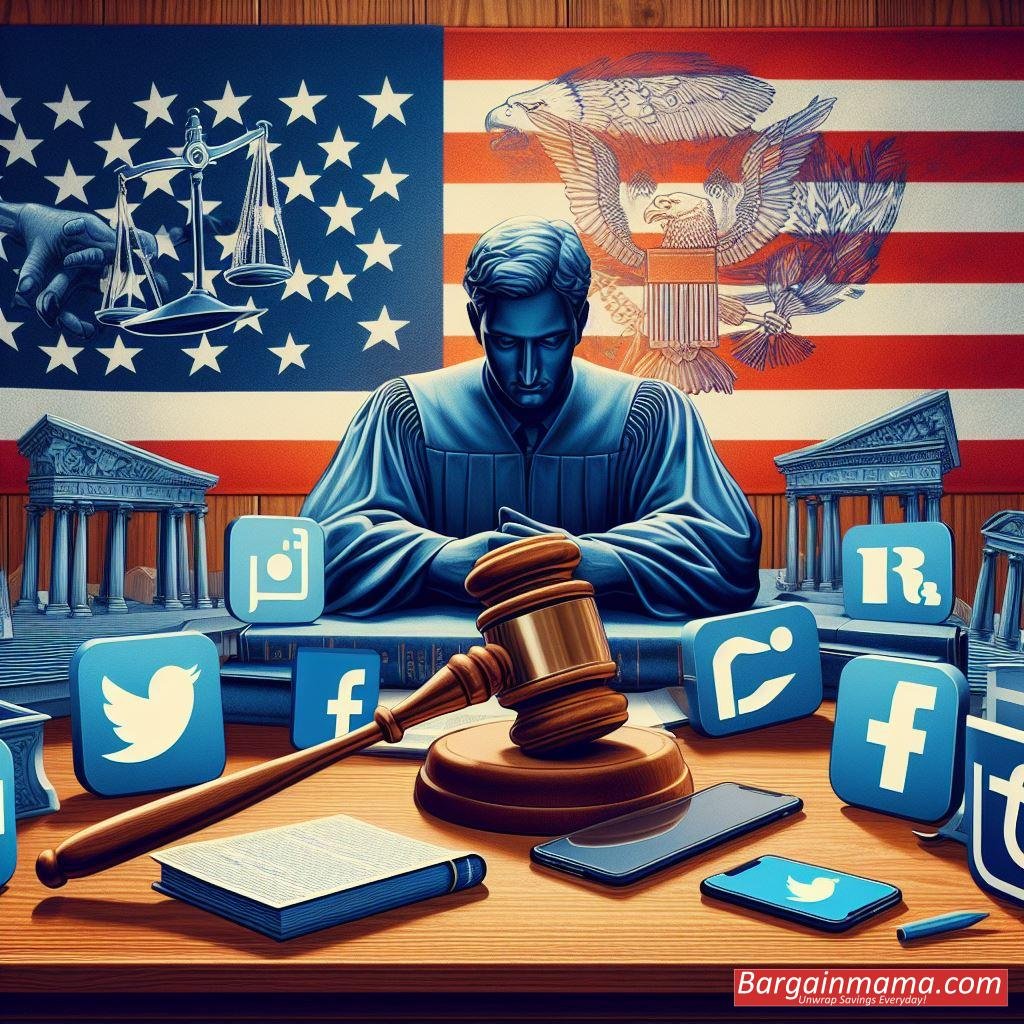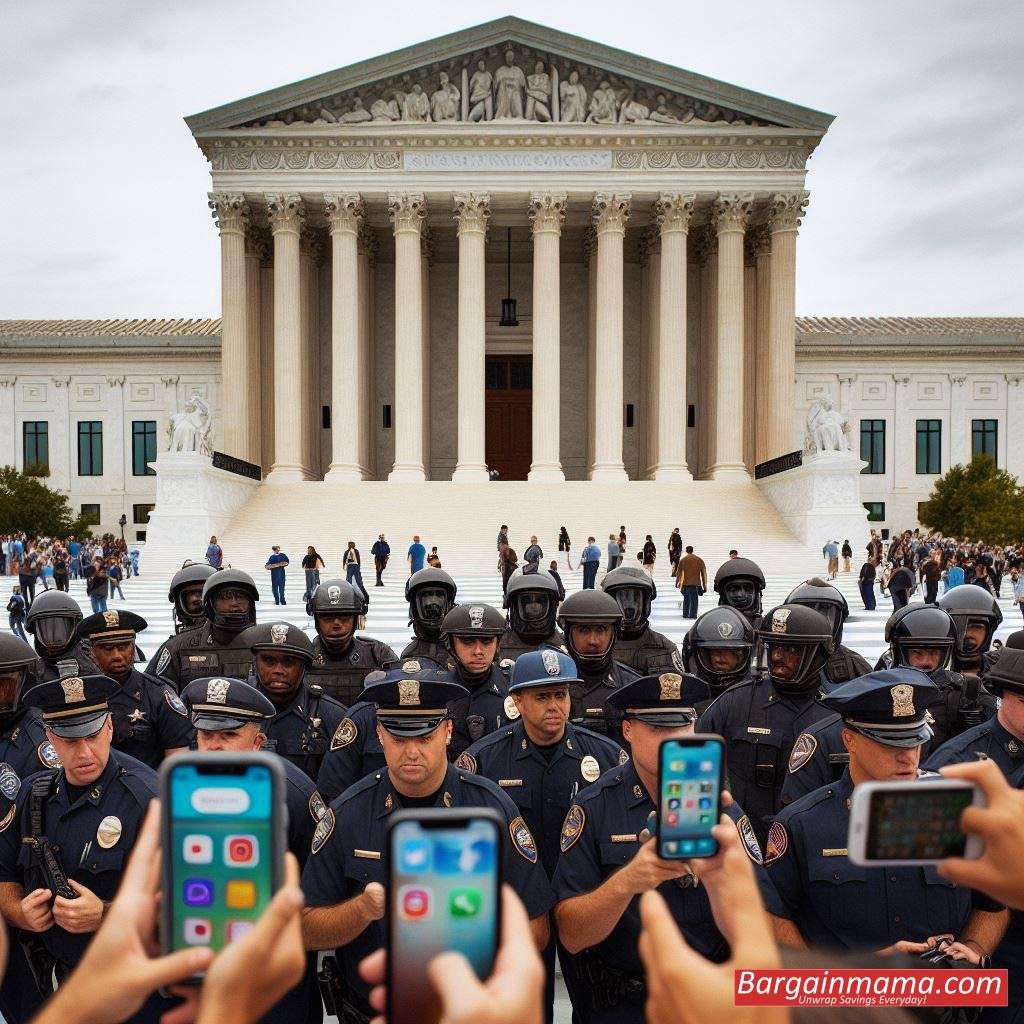The Supreme Court discussed the controversial argument surrounding recently passed legislation in Florida and Texas that try to limit social media firms’ capacity to censor content in a crucial hearing today. Several judges expressed strong skepticism about the restrictions, which have drawn attention around the country, because they may violate First Amendment rights.

Chief Justice John Roberts raised worries about government attempts to control social media companies’ content moderation guidelines, emphasizing that these orders might go against the fundamental principles of the First Amendment. The statutes in question forbid platforms from suppressing particular political opinions; supporters claim this stops prejudice against conservatives.
The justices, however, didn’t seem to agree on the matter; some questioned the laws’ broad application and their possible ramifications outside of social media. Justice Brett Kavanaugh stressed that the First Amendment mainly applies to government action, not private corporations like social media companies, while Justice Samuel Alito questioned whether restricting some viewpoints amounts to censorship.
The topic of whether social media platforms’ content moderation falls within First Amendment protected speech was also discussed throughout the debate. This topic, in which the justices struggled to draw a line between content moderation and censorship, highlighted the case’s complexity.

The discussion clarified a number of situations, such as how the regulations might affect Internet firms other than social media sites. The justices voiced doubts regarding the regulations’ scope, wondering if they could apply to businesses such as Uber, Google, and Amazon.
Concerns concerning the measures’ constitutionality were also voiced, with Justice Sonia Sotomayor emphasizing how they would inhibit diversity and curation in online marketplaces. The court also discussed transparency and equitable enforcement as it investigated whether specific legislation provisions may withstand constitutional scrutiny.
The federal government voiced its opinion on the matter, arguing that the legislation violated the right to free speech on private platforms. The consequences of Section 230 of the Communications Decency Act, which protects digital platforms from some content moderation-related claims, were also discussed in the debate.

The possible repercussions of preserving the laws became clear as the debate went on. If the regulations were maintained, attorney Paul Clement threatened to seriously disrupt social media systems and have a chilling effect on free speech.
Overall, the proceedings today highlighted the case’s high stakes and its potential to change the rules around Internet speech and the First Amendment. The ultimate decision rendered by the Supreme Court may have significant effects on social media regulation and the defense of free speech in the digital era.



